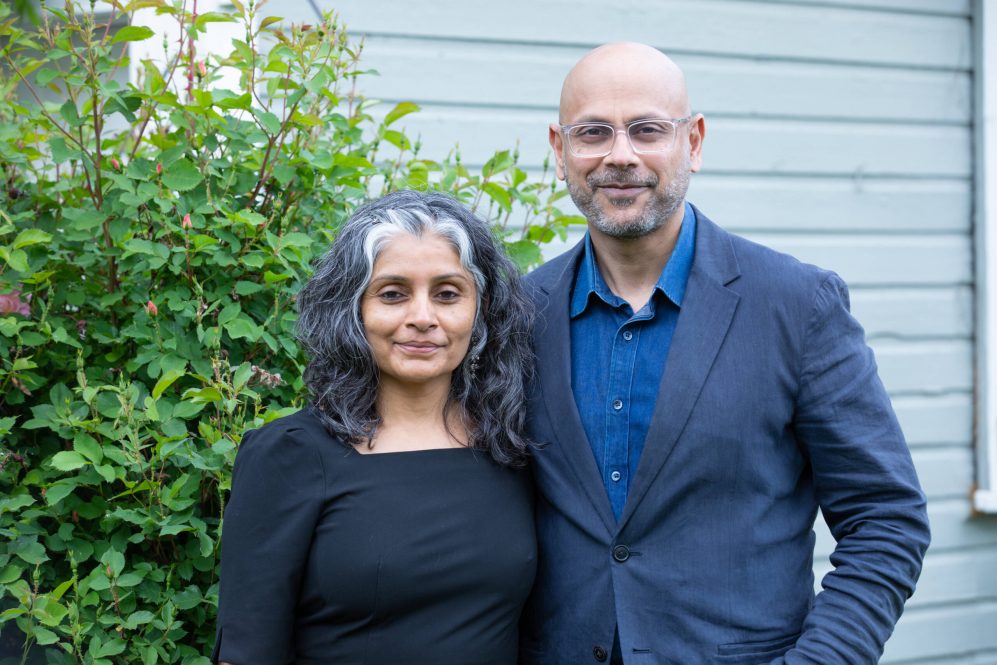Fahd A. Vahidy ’95 (CLAS), ’98 MA and Monika Doshi ’99 (CLAS) know what it’s like to feel like an outsider at college.
Both were raised by immigrant families and were newcomers to the American college experience at UConn in the 1990s. Both were grateful to find a home on campus at the Asian American Cultural Center.
Since graduating, they have generously donated to and volunteered for the center, helping many students along the way feel less like outsiders. They’ve been mentors and lecturers, served on many student and alumni panels, and rarely miss an event.
They have also contributed in several other ways to the greater UConn community. Vahidy, who is a philanthropic advisor to William C. Graustein, a Connecticut-based philanthropist, recently began serving on the advisory board for UConn’s College of Liberal Arts and Sciences.
“It’s great to be reconnected to CLAS and to be in conversation about academic programs, students’ experiences, and how alumni are able to support new and exciting efforts,” he says.
Doshi, an assistant professor at Brown University’s School of Public Health, has been invited as a guest lecturer by different academic departments, centers, and institutes at UConn, including the Asian American Studies Institute, the History and Sociology departments, and the Rainbow Center. She has also consulted for UConn’s Institute for Collaboration on Health, Intervention, and Policy, better known as InCHIP, a center where researchers from across disciplines come together to collaborate on projects.
They both agree that the student body has become more diverse and UConn as an institution has made great efforts to ensure student voices and experiences continue to be a priority.
“I think the student body is very different now and they are quite active,” Vahidy says. “It’s been so encouraging to see where the student body is going in terms of acting upon their values and organizing in a way to support the type of culture that we can all be really proud of. I’m very excited and bullish about the future of UConn,” he says.
Vahidy and Doshi, who live in West Hartford, Connecticut, have both devoted much of their lives to public service. In addition to his volunteer work at UConn, Vahidy has served on several local and state-wide boards and recently joined the boards of the NewAlliance Foundation and the Student Loan Fund. Doshi spent the first half of her career as an independent consultant working on public health projects mainly in Africa and Asia.
But most of their giving supports the Asian American Cultural Center, which provided critical support and a host of transformative academic and non-academic experiences when they were students.
“It made me come to terms with my own identity,” Doshi says. “At that age, I was struggling quite a bit with my identity, just being an immigrant to this country and straddling two very different cultures.”
Both remain close to the center’s director, Angela Rola, whom they consider “extended family.” Rola says the feeling is mutual, adding that she values the couple’s energy and commitment to the center.
“They are very humble and genuine and that’s what we appreciate,” Rola says. “I know when they come to lecture in classes or sit on alumni panels that students get a lot from them. The students appreciate the roads they’ve traveled because they see themselves in Monika and Fahd and see that, ‘Oh, the struggles that I’m feeling now are very similar to what they’re talking about.’ They see the trajectory that they’ve gone through and that’s an inspiration for many students.
“They do this because it gives them a sense of purpose,” she adds. “They believe in the power of education and their contributions here have had a critical impact on generations of students. They are extraordinary people.”



